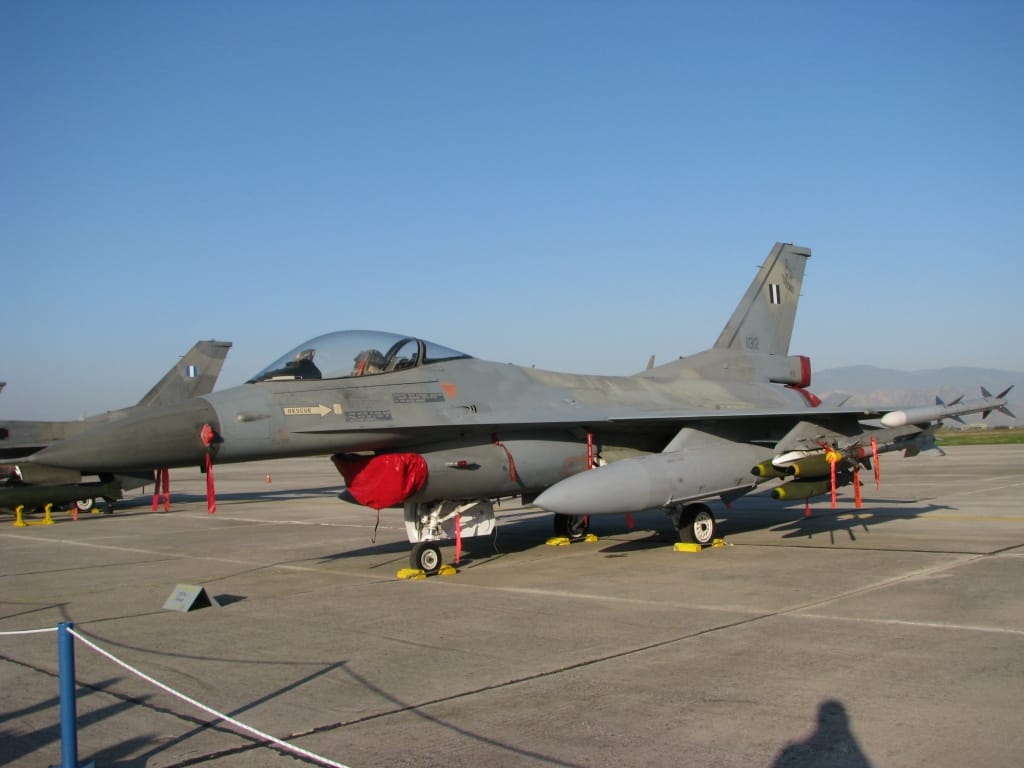US Navy Attempts to Acquire F-16s from Greece
The United States Navy revealed that it made an unsuccessful bid to acquire several F-16 Fighting Falcon jets from Greece. The goal was to use these jets for its adversary squadrons, which simulate enemy aircraft in training exercises. The decision, however, did not go as planned. This surprising news has drawn attention from both defense experts and military observers worldwide.
The US Navy’s plan was aimed at enhancing its training capabilities. Adversary squadrons play a key role in preparing Navy pilots for real combat situations. These squadrons often use aircraft that mimic the flight patterns, speed, and maneuverability of potential adversaries. The F-16, a versatile and widely used fighter jet, would have been an ideal addition to these squadrons. However, the bid to acquire these aircraft from Greece was met with complications.
Why the Bid Was Unsuccessful

The attempt by the US Navy to acquire the F-16s faced several challenges. Firstly, Greece’s own defense needs made it difficult to part with these jets. Greece currently operates around 150 F-16s, and these aircraft are a crucial part of its air force. The country has recently invested heavily in upgrading its fleet, adding advanced radar systems and other modern technologies to its F-16s. As a result, Greece is reluctant to sell or transfer these jets to another nation, especially at a time when regional tensions are high.
Another factor that contributed to the unsuccessful bid is the geopolitical climate. Greece has been strengthening its defense capabilities due to ongoing tensions in the Eastern Mediterranean, particularly with Turkey. The country’s military planners see the F-16s as vital for maintaining air superiority and deterring potential threats. Given this context, Greece was not inclined to reduce its own defense readiness by selling off these important assets.
In addition, the financial terms of the bid may not have met Greece’s expectations. While the details of the offer were not disclosed, it is speculated that the price or conditions proposed by the US Navy were not attractive enough for Greece to consider. The country had invested a significant amount in upgrading its F-16 fleet, and any sale would likely need to reflect that value. Thus, the financial aspects of the deal could have played a major role in its failure.
Implications for US Navy Training Programs
The failure to secure the F-16s from Greece has implications for the US Navy’s training programs. Adversary squadrons are critical for preparing pilots to face potential threats from nations with advanced air forces. The F-16, known for its agility and combat performance, would have been a valuable addition to these training units. Without access to these jets, the Navy may need to explore alternative options to enhance its adversary training capabilities.
One possible option is to seek older F-16 models from other allies or partner countries. Several countries, including Israel, Taiwan, and Turkey, operate significant fleets of F-16s. However, each of these countries has its own defense priorities, and it is uncertain whether they would be willing to part with any of their aircraft. Additionally, these countries might expect favorable terms or other benefits in exchange for transferring their jets to the US Navy.
Another option could involve retrofitting or upgrading existing US aircraft for adversary roles. The Navy could consider converting some of its older F/A-18 Hornets or other jets into adversary aircraft. However, this process could be time-consuming and costly, and it might not provide the same level of capability that the F-16s would offer.
Future Prospects and the Way Forward
Looking ahead, the US Navy may continue to pursue other avenues to strengthen its adversary squadrons. The importance of realistic training cannot be overstated, especially given the evolving threats posed by advanced enemy aircraft. The Navy might explore collaborations with private defense contractors or seek new government funding to acquire more advanced jets for training purposes.
There is also the possibility of negotiating with other countries that operate F-16s. Nations like Portugal, Poland, and some Middle Eastern countries have older F-16 models that might be suitable for adversary roles. The Navy may need to offer more competitive terms or provide incentives, such as military aid or technology transfers, to encourage these countries to sell their aircraft.
While the US Navy’s attempt to acquire F-16s from Greece was unsuccessful, it underscores the ongoing efforts to enhance pilot training and readiness. The need for effective adversary training will only grow as potential threats continue to evolve. The Navy’s leadership remains committed to finding new ways to ensure that its pilots are prepared for any challenge they might face.
The failure of this bid serves as a reminder of the complexities involved in international arms deals. It also highlights the importance of balancing national defense priorities with the need for effective military training. As the US Navy considers its next steps, it will likely continue to explore all available options to strengthen its adversary squadrons and maintain its edge in aerial combat training.
